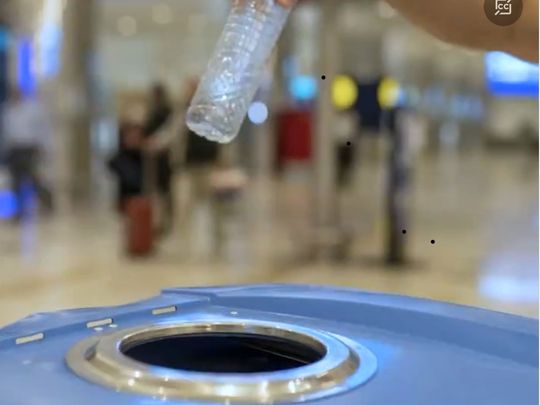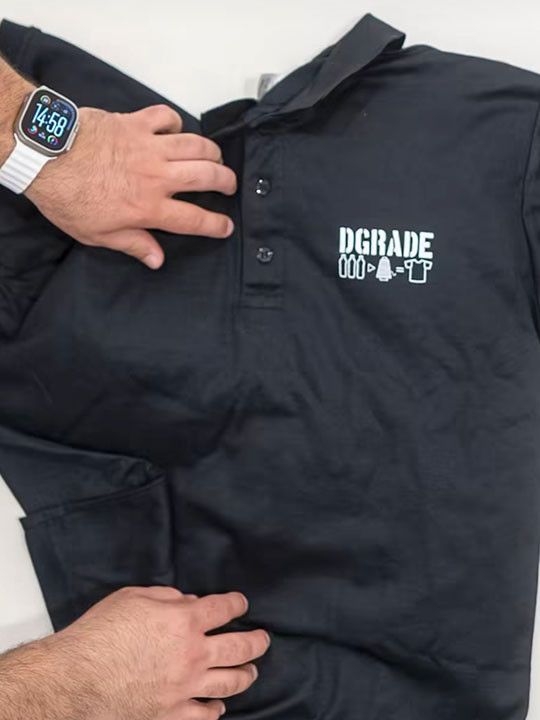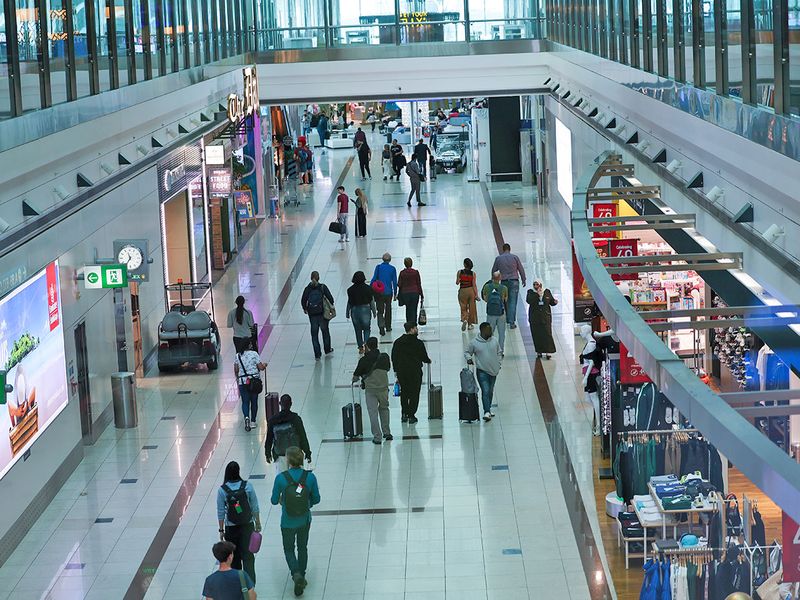
Dubai: Plastic bottles disposed of by passengers before passing through security check at Dubai International don’t actually go waste.
As Dubai Airports, which operates Dubai International (DXB) and Dubai World Central (DWC), lets on, these bottles are turned into sustainably made T-shirts.
“We collect on average of 700,000 half litre plastic bottles per month, the majority of which is generated at our security touch points throughout the airport,” a Dubai Airports spokesperson told Gulf News.
Dubai Airports works with DGrade Clothing, a Dubai-based fabric manufacturer, to collect the discarded plastic bottles and give them a new life. The plastic bottles are converted into yarn that weaves into planet-friendly clothing.
“DGrade is an innovator, being one of the first companies in the region to offer a circular solution for plastic bottles by ensuring they are recycled into new products,” the spokesperson said.
The bottles are collected in 240 litre trolley bins. These bins are transported to a central location where they are then sorted and bailed prior to being transported off site, the spokesperson added.
What happens next?
According to DGrade, the plastic bottles collected from its partners are delivered in bales to its recycling factory. The plastic bales are broken, small particles removed, manually sorted and shredded into flake. They are then hot washed and optically sorted to produce high quality recycled flake. The flake is then extruded into fibre and spun into Greenspun yarn (it has fewer carbon emissions) which is woven into fabric to make clothing.

Asked why the plastic bottle culture is still prevalent at Dubai International, despite efforts to encourage the public to use refill water fountains, the Dubai Airports spokesperson said, “Due to plastic bottles being currently intrinsic to our everyday life, the transition to reusable drinking bottles will take time. In addition, the airport receives many passengers from countries where reusable bottles are not prevalent.”
“When plastic bottles are recycled, they are in fact the most sustainable packaging option as they produce much fewer carbon emissions and consume less energy during production compared to glass bottles for example,” the spokesperson added.
60 per cent reduction in waste
The recycling of plastic bottles into T-shirts is just one of the many measures that Dubai Airports takes to reduce Dubai’s carbon footprint.
According to Dubai Airports, these measures have helped achieve a 60 per cent reduction in waste sent to landfills from DXB.
Dubai Airports’ food waste treatment plan captures and composts more than 2,000 tonnes of food waste annually from food and beverage outlets, lounges and hotels across DXB terminals and concourses. It has partnered with BEEAH Group to create and implement the food waste plan, covering the distribution of food waste bins, necessary training and processing of more than 400 tonnes of food waste yearly.

Dubai Airports’ waste diversion strategies include separation of recyclables at the source, on-site composting of organic materials, and close collaboration with stakeholders like DXB Hotel, lounge operators and key commercial Food & Beverage partners, to ensure effective waste management and the highest possible level of diversion from landfills. It includes a special initiative that captures 100 per cent of all cooking oil used in food and beverage outlets and converts it to biodiesel fuel.
Other key sustainable initiatives include the installation of a 15,000-panel solar energy system – the largest at any Middle Eastern airport and its efforts to integrate electric ground operations vehicles. Dubai’s airports have also seen facility upgrades for enhanced energy efficiency and the replacement of conventional lights with energy-efficient LED fixtures.
DXB’s Sustainable Measures at a Glance
• Recycling of all separated and recyclable materials, including but not limited to glass, metals, plastics cardboard (OCC), food waste and cooking oil.
• Collaboration with BEEAH to divert 60 per cent of monthly waste from landfills.
• Installation of DGrade boxes across DXB offices to encourage employees to dispose of plastic bottles, ensuring they’re recycled.
• Use of the energy generated from solar panels to power 36 per cent of Terminal 2.
• Part of PANGAIA’s Trillion Bees Coalition to support their Bee the Change initiative that protects pollinators
• Part of the Airports of Tomorrow initiative by World Economic Forum.








